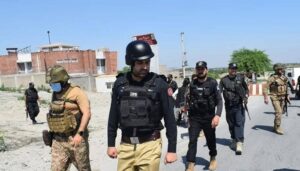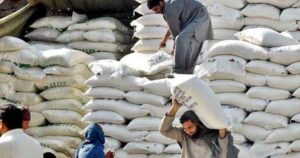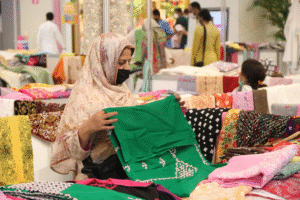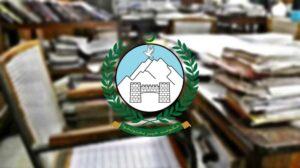PESHAWAR- Pakistan’s fight against polio has hit another roadblock as health officials confirmed the presence of wild poliovirus type 1 in sewage samples across multiple districts. The Regional Reference Laboratory identified the virus in environmental samples collected from 14 districts spanning all four provinces—Sindh, Balochistan, Khyber Pakhtunkhwa, and Punjab.
The National Emergency Operations Centre (NEOC) reported these findings, highlighting a significant setback in the country’s efforts to eradicate the disease. The samples, gathered between February 10 and 18, revealed traces of the virus in major urban centers like Karachi, Lahore, and Quetta, as well as remote areas such as Gwadar, Nasirabad, and Killa Saifullah.
This widespread detection underscores the virus’s persistent circulation in communities, even in the absence of visible cases. Environmental surveillance, which tests sewage water for the virus, serves as a critical tool for tracking polio, especially in regions with low vaccination rates.
This year, Pakistan has already reported six polio cases, with four originating from Sindh and one each from Khyber Pakhtunkhwa and Punjab. The discovery of the virus in sewage systems is particularly alarming, as it signals ongoing transmission in under-vaccinated populations. Health officials warn that the situation could spiral out of control without immediate action.
Challenges in Polio Eradication
Pakistan remains one of only two countries globally, alongside Afghanistan, where polio is still endemic. Despite decades of efforts, the country continues to face significant hurdles in its vaccination campaigns. Vaccine hesitancy, fueled by misinformation and mistrust, remains a major barrier. In regions like Balochistan and Khyber Pakhtunkhwa, militant groups have targeted polio workers, accusing them of espionage or promoting Western agendas. These attacks have disrupted immunization drives, leaving thousands of children unprotected.
The NEOC has called for an urgent intensification of vaccination efforts, particularly in high-risk districts. “The presence of poliovirus in environmental samples is a stark reminder that the virus remains a threat,” said a spokesperson for the NEOC. “We must ensure every child receives the vaccine to break the chain of transmission.” Global Implications The resurgence of polio in Pakistan poses a risk not only to the country but also to the global community.
Polio is highly contagious and can easily cross borders, threatening regions that have already eradicated the disease. Dr. Hamid Jafari, the World Health Organization’s Director of Polio Eradication for the Eastern Mediterranean Region, emphasized the need for a coordinated response. “The detection of poliovirus in sewage systems is a wake-up call. It highlights the importance of maintaining high immunization coverage and strengthening surveillance systems to detect and respond to outbreaks swiftly,” he said.
Glimmers of Hope
Amid the concerning findings, there are some positive signs. Thirty districts across Pakistan reported no traces of the virus in their environmental samples, demonstrating progress in certain areas. However, the overall situation remains dire, with the virus continuing to exploit gaps in vaccination coverage.
The resurgence of polio in Pakistan serves as a stark reminder of the fragility of global health achievements. As the world continues to battle the COVID-19 pandemic, the fight against polio must not take a backseat. For Pakistan, the path to eradication remains challenging, but health officials remain committed to achieving a polio-free future. The stakes are high—not just for Pakistan, but for the global community, which has invested billions of dollars and decades of effort into eradicating this crippling disease.












